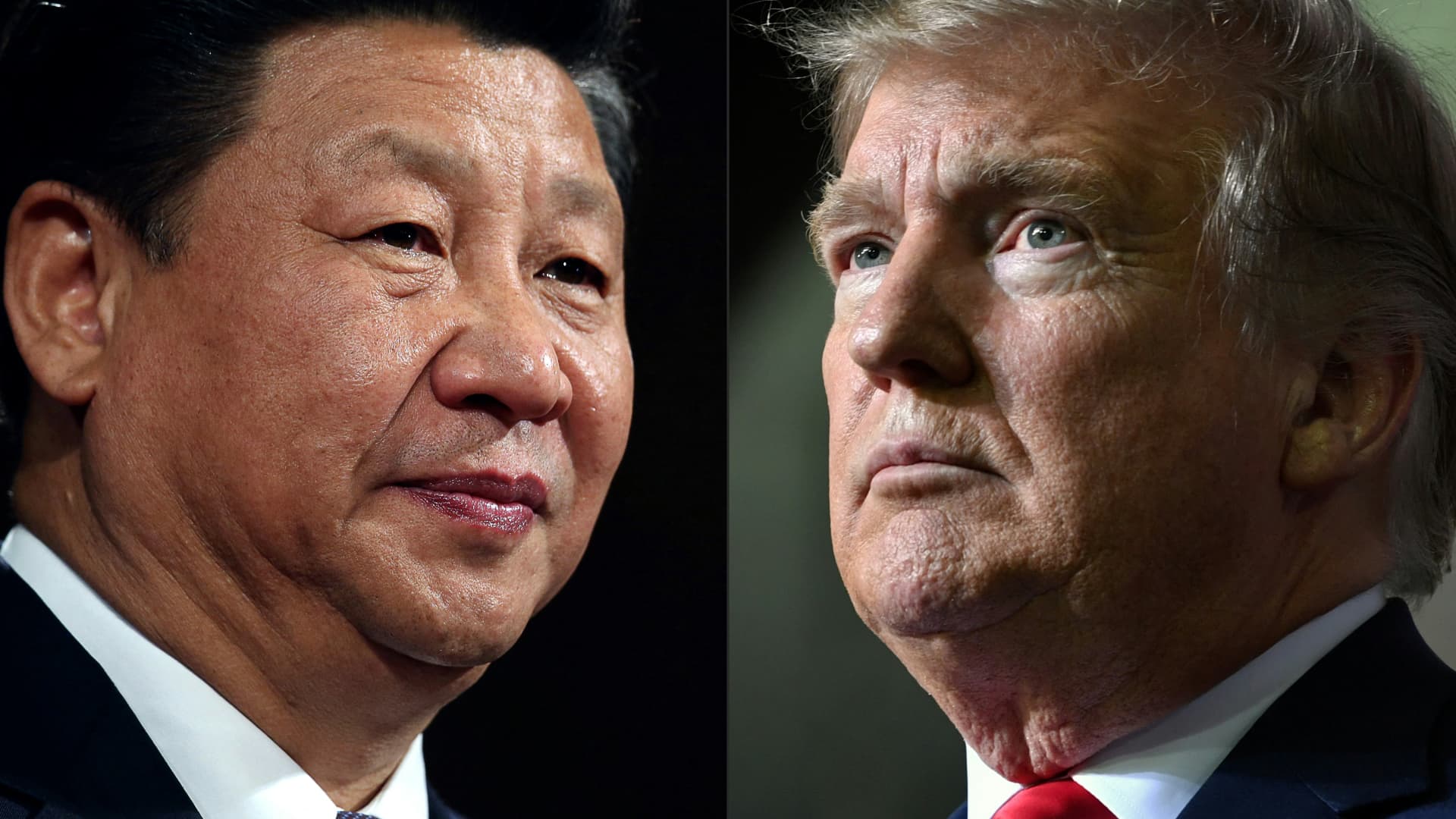U.S. President Donald Trump takes a question from a reporter before boarding Marine One on the South Lawn of the White House on Feb. 28, 2025 in Washington, D.C.
Andrew Harnik | Getty Images News | Getty Images
U.S. President Donald Trump’s 25% tariffs on Canada and Mexico, and an additional 10% on China, are officially in place, proving that he wasn’t brandishing them merely as a negotiating tactic, as many had thought — and hoped. Canada and China have since announced retaliatory tariffs, while Mexico said its response will come Sunday.
Geopolitical trade and international relations may be fractured by the U.S., but it could be domestic consumers and the economy that hurt the most. Business leaders in shipping and retail — two industries that serve as bellwethers of the economy — expressed concerns that the tariffs could raise prices, even within days.
Over in markets, investors were likewise spooked. All major U.S. benchmarks slumped. Gains made by the S&P 500 as it rode the victory wave of Trump’s victory on Election Day have now vanished. Tech stocks have been battered since Trump’s inauguration in January. The tax on imported goods from other countries is starting to look like one on stocks too.
What you need to know today
And finally…
Tariffs, geopolitical uncertainty and economic concerns are influencing FX markets, analysts say.
Peter Dazeley | Getty Images News | Getty Images
These safe-haven currencies hold allure over the U.S. dollar amid Trump regime volatility, analysts say
Geopolitical developments from just this month have seen U.S. tariffs on Canada, Mexico and China come into effect, U.S. President Donald Trump’s reported pause on military aid to Ukraine, softer economic data out of the U.S., and European leaders committing to ramp up defense spending. David Roche, a strategist at Quantum Strategy, said such events could see the greenback dethroned as the FX market’s safe haven.
Jane Foley, head of FX strategy at Rabobank London, told CNBC via email on Tuesday that she was expecting the British pound and the Japanese yen to be winners in the current environment. Dominic Schnider, head of global FX and commodity at UBS Global Wealth Management, said “investors may shift more significantly toward higher-yielding currencies” such as the Australian dollar and British pound.











